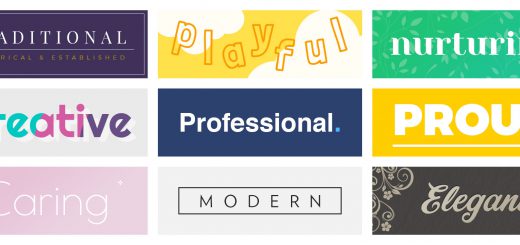What will 2020 bring to the education technology arena?

Don’t make a joke about 2020 vision….
Don’t make a joke about 2020 vision….
Don’t make a joke about 2020 vision….
Don’t make a joke about 2020 vision….
Don’t make a joke about 2020 vision….
Don’t make a joke about 2020 vision….
Don’t make a joke about 2020 vision….
OK I think I have stifled my 2020 vision urges (oops) but I would really like to talk about what trends we might see in education technology this year.
This may well be the most uninformed blog of the year as some people will no doubt fill you with expectation of some exciting behind-the-scenes investments which will revolutionise technology and education as we know it. Some major edtech of the future shininess.
This blog is not about that kind of new technology. Quite simply because schools can barely afford new speakers for classrooms or replace interactive whiteboards which have long since died a mid-observation death. In fact, in many cases, schools are struggling to fund the drywipe pens to replace the ones you accidentally wrote on your interactive white board with in 2019. Therefore I find it highly unlikely that any technology we have not met yet will suddenly create any kind of school-based revolution.
What will we be seeing then?
Firstly I think we will see even more schools start to use the VLE (Virtual Learning Environment) alternatives such as Google Apps for Education and Microsoft Office365. With new add ons and more teachers aware of extras such as MS Teams and Google Classroom, it is likely that schools will harness more and more of this potential. The cost difference between these and the more old-skool VLEs and LMSs (Learning Management Systems) we still see around is huge and this can tempt schools to learn more. At BETT both companies are likely to have a huge presence and much of their work in the arena is showcasing what schools have already done with their products so we will see a lot more of the same spreading out. There are still considerations for schools to make in terms of ensuring that student data is used correctly (the old adage that if you are not paying for the product then you are the product comes to mind) and ensure that teachers have the time they need to learn fully the implications of opening up a world of Microsoft or Google products to their pupils (I say this not to scaremonger as I use them all myself but it is just a realistic need as alongside great power comes great responsibility!)
I also do not think the traditional VLE and LMS has gone yet. There are still new ones appearing all the time. They usually start with a very specific goal in mind but inevitably they will diversify via the feedback given from teachers who would like all their products to be a kind of one-stop-shop for all their education needs. An example of this is Satchel One from the team who brought you Show My Homework. They created one niche product around homework. Then became Satchel. Added some more products, and now have launched Satchel One which is one learning platform with access to the different elements. This kind of change is not uncommon in education and highlights the constant need for teachers of having one place to go for everything rather than trying to log in to 20 different places. This is exactly why Google and Microsoft have been able to capture the imagination of so many teachers and schools. It’s easy, it works, and people generally trust the big names and use them out of school so the leap is not that big.
VR (Virtual Reality) headsets were everywhere at BETT last year, and the year before, and have even seen some success with big contracts and some areas buying headsets for all their schools. There are some exciting resources being made available for them too. Recently I have seen some excellent uses of VR in science (looking deeper into molecular level chemistry at secondary schools, and looking at dinosaur fossils with primary) but realistically, with budget constraints as they are, I doubt this will ever take off at some monumental pace. It will always interest and excite people, but it isn’t the bread-and-butter of the edtech industry and likely never will be.
Lastly a look at AI (Artificial Intelligence) which has as much buzz around it as VR, but is actually more likely to be used in ways most teachers are not even aware of. We won’t be going out to “buy some AI” but more and more products are using AI behind the scenes to improve intuitiveness of products and to start to “personalise learning experiences” in a variety of ways. Assessment/learning journey platform Kinteract uses AI, for example, to intelligently “suggest” learning objectives and subjects for teachers to tag into their learning journey posts and link to the assessment outcomes for pupils. This is not some big change for education as a whole but is a massive timesaver for teachers who are used to having to search massive lists of objectives to “tick” the right ones off. And anything which saves teachers time and stress is a good thing generally.
One company which uses AI for learning is Century Tech, who seem set for world domination at the minute as they have just signed a contract to get Century Tech into all schools in Belgium and are seeking similar contracts elsewhere. Their learning platform offers up bite-sized learning for students and does all the marking online saving teachers some workload concerns. The AI-powered system then suggests learning pathways for pupils, helping to fill gaps in learning for those falling behind, and adding challenge for those who can go deeper into a subject.
All in all 2020 will not give us a whole raft of new products, I don’t think, although we may see more brands offering the same. There will always be some new shiny thing to look at, but I am much more interested in seeing more schools take on that which has already been proven to work. Budgets this year will seem the tightest they have been for a long time and edtech companies should bear that in mind when deciding on what they presume to be “the next big thing!”













